2023
Sally Angelson
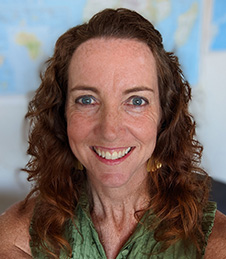 Sally Angelson began her PhD study with the National Centre for Peace and Conflict Studies | Te Ao o Rongomaraeroa in early 2023. Her research focusses on how to co-create a fit-for-purpose aid sector, which shifts the power and directionality of the aid architecture to one that is locally led and owned, through the Localisation Agenda, introduced in 2016.
Sally Angelson began her PhD study with the National Centre for Peace and Conflict Studies | Te Ao o Rongomaraeroa in early 2023. Her research focusses on how to co-create a fit-for-purpose aid sector, which shifts the power and directionality of the aid architecture to one that is locally led and owned, through the Localisation Agenda, introduced in 2016.
In recent years, the Localisation Agenda has gained traction and in theory has the potential to shift power and decolonise the aid sector. In practice, it is mutually stuck from international and local perspectives, and Sally’s research will investigate why change hasn’t happened, and how change could happen, through a case study of Aotearoa New Zealand and the Solomon Islands.
Sally has spent more than 20 years working in various aspects of community development and peacebuilding across Africa, Asia, the Middle East, and the Pacific, including at home in Aotearoa, covering thematic areas of youth, education, livelihoods, health, gender-based violence, poverty alleviation and conflict resolution. The focus of the work has challenged the structures of the system and worked to amplify local voices and ensure the ownership of the process has locally centred.
Sally’s thesis for her master’s degree explored the relationship between Peacebuilding and Education for the Palestinian Refugees of Lebanon, through the University of Auckland. She is from Aotearoa New Zealand and lives in Dunedin with her husband and two young children.
Sonja Tamberg Dobson
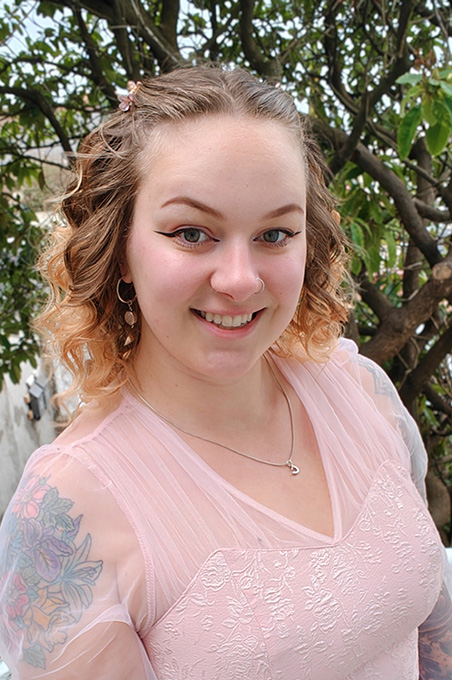 Sonja is a Canadian Estonian from Toronto, Canada and her PhD research is supported by the Rei Foundation. Although she started her PhD at Teo Ao o Rongomaraero a | National Centre for Peace and Conflict Studies in February 2022, it wasn't until September 2022 that Sonja was able to move to Dunedin, due to COVID restrictions. Sonja began her PhD from her mother's basement, which is fitting as Sonja also finished her Masters in Conflict Studies and Human Rights from Utrecht University in the Netherlands under COVID-restrictions, from a bedroom in her dad's house in August 2020. Her master's thesis was titled Is Timing Everything? Forecasting the Ripest Moment for Peace. In 2019, Sonja graduated from the University of Toronto with an Honours Bachelor of Arts in African Studies and Political Science, with High Distinction.
Sonja is a Canadian Estonian from Toronto, Canada and her PhD research is supported by the Rei Foundation. Although she started her PhD at Teo Ao o Rongomaraero a | National Centre for Peace and Conflict Studies in February 2022, it wasn't until September 2022 that Sonja was able to move to Dunedin, due to COVID restrictions. Sonja began her PhD from her mother's basement, which is fitting as Sonja also finished her Masters in Conflict Studies and Human Rights from Utrecht University in the Netherlands under COVID-restrictions, from a bedroom in her dad's house in August 2020. Her master's thesis was titled Is Timing Everything? Forecasting the Ripest Moment for Peace. In 2019, Sonja graduated from the University of Toronto with an Honours Bachelor of Arts in African Studies and Political Science, with High Distinction.
Sonja's interest in peace was born out of studying international development, particularly during a trip to Tanzania in 2014. When Sonja started her Bachelors in 2015, she was enrolled in a niche program at the Munk School for Global Affairs and Public Policy which focused on global innovation and global problem-solving. This program led Sonja to participate in a fully funded summer school program in Jerusalem in July 2016 to study the Israeli-Palestinian conflict. The program included trips to IDF bases, underground hospitals, UN headquarters, the disputed territory of the Golan Heights, the West Bank and Sderot, the latter now the site of a battle which triggered a relapse into conflict and violence between Israel and Palestine on 7 October 2023. The following year, in July 2017, Sonja went on a fully funded research trip to study the use of English as the language of education in Webuye, Kenya which resulted in a research paper titled Does English Deserve its Gold Medal in Development? She then moved to Ireland for a year abroad to study at Maynooth University, where she was privy to an insiders view of the Northern Ireland conflict and the Northern Ireland-Republic of Ireland dynamics. To conclude her time in Ireland, Sonja took part in a summer school program on EU Law and Human Rights. Sonja then began her final year of her Bachelors, during which time she wrote her senior thesis titled The Power in Participation: Why Rwanda and Burundi's Paths to Peace Diverged.
Sonja has studied many different aspects of peace processes, from peaceful revolution in Estonia (her motherland) to traditional peace in Uganda to local peace in Northern Ireland to UN peace processes in Rwanda and Burundi. Her PhD focus is on the peacemaking portion of UN peace processes, specifically regarding what the UN has communicated through their resolutions and guidance documents. This is analysed in terms of what the UN intends to do based on their publications and what the UN actually does,. The aim is to better understand this disconnect between words and action and how to shrink that gap.
Sonja's other areas of interest and expertise include the G7 and G20 commitments made at annual summits, particularly how they fare on their development commitments, and anti-money laundering and countering the financing of terrorism. She has been working with the University of Toronto's Munk School of Global Affairs and Public Policy research groups on tracking compliance by G7 and G20 members on their commitments since 2015, representing the research groups at the G20 2019 Osaka, 2021 Rome and 2022 Bali summits.
Raymond Hyma
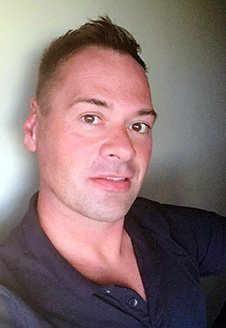 Raymond Hyma is a Canadian who has spent two decades working in government, academia, and civil society on issues of international development, migration, and peacebuilding. A two-time Rotary Peace Fellow, he holds a Master in International Relations from the Universidad del Salvador in Argentina, and a Bachelor of Arts in Political Science and Latin American Studies from Simon Fraser University in Canada.
Raymond Hyma is a Canadian who has spent two decades working in government, academia, and civil society on issues of international development, migration, and peacebuilding. A two-time Rotary Peace Fellow, he holds a Master in International Relations from the Universidad del Salvador in Argentina, and a Bachelor of Arts in Political Science and Latin American Studies from Simon Fraser University in Canada.
Over the past ten years, he has been based in Cambodia focused on working with community researchers on a peace research approach known as Facilitative Listening Design. As a practitioner coming to academia, his interests lie in participatory action research and the potential for leveraging local inquiry practice as a tool for conflict transformation by research designed to foster cooperation and dialogue through the process itself.
His research explores community research for peace in initiatives in Southeast Asia and the potential for re-orientating typical power imbalances in academia/community collaboration, the ability to build trust among conflict groups through contact made in collaborative research, and the value of new knowledge generated through inquiry directly by impacted communities who are most often the subjects of research carried out by outsiders.
His doctorate project is a participatory project itself which he hopes can serve as an example of academic/community collaboration and challenge research paradigms that under-appreciate the value of research conducted from standpoints directly stemming from the communities at the centre of inquiry.
Avanthi Kalansooriya
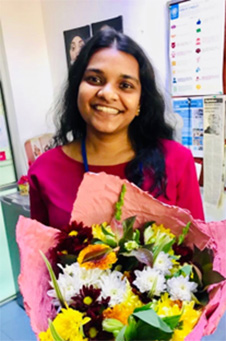 Avanthi Kalansooriya is a PhD Candidate at the University of Otago. Her PhD research focuses on women’s political activism in the elusive phases of peace, it particularly attempts to study how women who were formerly part of the militant movements exert their political agency during the state mediated phases of negative peace.
Avanthi Kalansooriya is a PhD Candidate at the University of Otago. Her PhD research focuses on women’s political activism in the elusive phases of peace, it particularly attempts to study how women who were formerly part of the militant movements exert their political agency during the state mediated phases of negative peace.
She has a MA in International Relations/Political Science from the Graduate Institute of International and Development Studies in Geneva, Switzerland and interned at the Political Affairs and the Partnership Section at the UN Office at Geneva (UNOG). She has worked for UN Women, Sri Lanka for five years, focusing primarily on peacebuilding and labour migration.
At UN Women, she specialized in standard employment contracts for women migrant workers with a special focus on promoting employment standards for women migrant workers in the Gulf and the Asian corridor.
She further worked on a peacebuilding project that intersected developing Sri Lanka’s first national action plan on Women, Peace and Security (WPS) and women’s economic empowerment both against post-war and covid contexts. Avanthi worked as one of the chief trainers of the UN Women’s training for the UN Peacekeepers and has trained more than 1000 UN peacekeepers from the Sri Lankan military on Department of Peace Keeping Operations (DPKO) mandated training on Sexual Exploitation and Abuse (SEA) and WPS.
She has also worked as a researcher for three thinktanks in Sri Lanka, including International Centre for Ethnic Studies, Regional Centre for Strategic Studies and Centre for Poverty Analysis specializing on violent extremism, peacebuilding and gender. Avanthi’s first degree is from the University of Colombo in International Relations (Hons). Currently, she specializes in critical terrorism studies, post-colonial and decolonial feminist theories.
Didace Kamana
Julie Nalubwama
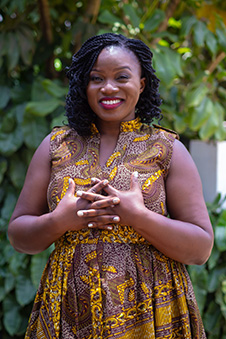 Julie’s PhD research at the National Center for Peace and Conflict focuses Studies focuses on resilience in faith communities and how it shapes local peacebuilding in protracted conflicts. Her thesis specifically focuses on the case study of South Sudan.
Julie’s PhD research at the National Center for Peace and Conflict focuses Studies focuses on resilience in faith communities and how it shapes local peacebuilding in protracted conflicts. Her thesis specifically focuses on the case study of South Sudan.
For the past 14 years, Julie has been actively engaged in designing, managing, and implementing peace and conflict transformation interventions in multi-ethnic and multi-religious contexts.
She has vast experience in faith-based approaches and programming to catalyze change and development. She is passionate about bridging the gaps between theory and practice in peace and conflict. She is a Commonwealth Professional Fellow from the Centre for Trust Peace and Social Relations, Coventry University-UK, has a Master’s Degree in International Security and Conflict Studies from Dublin City University- Ireland, and also holds a postgraduate diploma in Public Policy and Governance from the Uganda Management Institute. Julie’s other research interest include migration, refugees, and human rights.
Julie also possesses over 15 years’ experience as a Counselling Psychologist and holds Bachelor of Science in Psychology and Counselling. She is passionate about mental health in peace building.
2020
Hussain Raissi
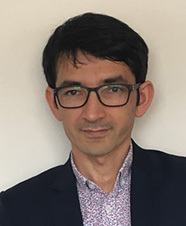
Hussain came to New Zealand from France, but he is originally from Afghanistan. He graduated from Sociology Department BA program, Kabul University in 2010. Between the years 2011-2012, he worked as cultural mediator in Abu-Dhabi, Emirates United Arabs with NATO forces. In Afghanistan between the years 2012-2014, he was responsible for the Media Library (Mediatheque) of the French Institute of Afghanistan. After obtaining a scholarship from the French government, he moved to France in August 2014. He earned a Master Degree in Sociological Studies and Diagnosis from the University of Bordeaux, France in 2016. From November 2016 until February 2019, Hussain worked with the different organizations and associations to assist Afghans and Iranian refugees and asylum seekers in their processes of integration and settlement into French society.
He began his PhD journey at the National Centre for Peace and Conflict Studies in April 2019. Hussain is conducting his PhD research through the Rei Foundation scholarship. He is exploring the impact of religiosity, ethnicity, life satisfaction and discrimination on the social capital and ultimately the sense of belonging of Muslim youth immigrants and refugees here in New Zealand. His interest in studying the sense of belonging of Muslim youth immigrants and refugees, comes from his own experience working with Afghan immigrants and refugees in France. In his PhD, he is interested in studying the sense of belonging of Muslim youth immigrants and refugees through their social capital (bonding, bridging and social links). In the research, the social capital of participants predicts their feeling of belonging that could be a national sense of belonging, ethnic-religion community belonging or a combination of both. To achieve this, he will apply a mixed method of qualitative and quantitative approach.
2018
Alejandra Del Pilar Ortiz
Started 1 March 2018
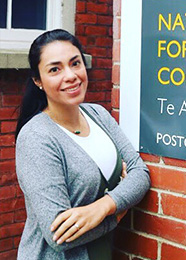 Alejandra's interest in academic research on Security Sector Reform began after a period of time working as a consultant to the Colombian Armed Forces and The National Center for Historical Memory in Colombia.
Alejandra's interest in academic research on Security Sector Reform began after a period of time working as a consultant to the Colombian Armed Forces and The National Center for Historical Memory in Colombia.
Her chosen research question is after a peace agreement was signed, to what extent soldiers from the state army in Colombia contribute with the creation of a permissive environment of violence. More concretely, to what extent, state armed actors contribute with the persistent of violence because of their ideological bias influence their willingness to:
- withhold their protection from certain group of civilians, because their identity-group; and
- have a disposition to support aggressive behavior against civilians, because their identity group.
Alejandra's research uses mixed method with experimental surveys of more than 900 Colombian Soldiers and semi-structural interviews to identify what is the role of the ideologies in the state armed actor's behavior in context of conflict and identify optimal conditions for interventions in the Security Sector Reform to change the mind of the soldiers after the end of the conflict.
David Whippy
Started 1 August 2018
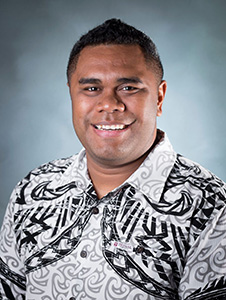
David is from Fiji and holds a Master's Degree in Diplomacy and International Affairs from the School of Government, Development and International Affairs at the University of the South Pacific, Fiji. His undergraduate work is in Psychology and Intercultural Peacebuilding. David's research interests are in peace education, conflict transformation, peacebuilding through sports and peace ecology.
His dissertation is focused on Fiji, where he is studying the validity and practicality of a local model of peace education within the public school education system. His thesis is that education targeted at the younger generation, through curriculum and systematic amendments, would influence transformation at multiple levels in the creation of a sustainable culture of peace. This perspective was developed in his work in Fiji's civil society around the areas of children's rights, contributions of youth in governance, transitions to democracy and restorative justice.
David is currently on a tenure-track at Brigham Young University – Hawaii, teaching courses on transformative mediation, intercultural peacebuilding, NGOs and conflict transformation, peace education and peace ecology. He hopes that his work empowers students to embrace peacebuilding initiatives and be influencers of good towards the establishment of peace in their spaces of influence.
2017
Khin Khin Lwin
Started 1 December 2017
An interdisciplinary facilitator and practitioner, with a background in education, development, and conflict transformation, I have collaborated with government institutions, and non-government, faith-based, and community-based organisations in the Philippines, Malaysia, Cambodia, France, India, and most especially, in my native country, Myanmar.
My work in Myanmar includes youth development, hosting conversations, peace-building and education initiatives at both policy and community levels. I hold a master's degree in Education from Hong Kong University and a master's degree in Peace and Conflict Studies from the University of Otago.
I am a member of Action Asia, a regional network of peace practitioners from across Asia. My continued interests and reflections include understanding the complexities of and working with multiple identities, mechanisms of violence and of active non-violence, insights into hosting conversations, peace practice, dialogue, healing and well-being, mentoring and accompaniment processes, intersectional feminism, art-based facilitation, eco-spirituality, and human resilience.
I am inspired by people, human stories, nature, art, conversations and coffee.
I am a Rei Foundation scholar currently undertaking my doctoral research at the National Centre for Peace and Conflict Studies. My research topic is on women's multiple identities and peace-building agency in Myanmar.
Dody Wibowo
Started 1 April 2017
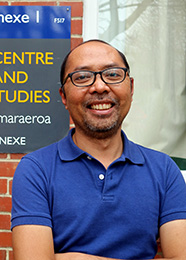 Dody Wibowo comes from Indonesia and holds a Master's Degree in Peace Education from the University for Peace, Costa Rica. He has worked in several institutions, including Peace Brigades International, Save the Children, Ananda Marga Universal Relief Team, and Universitas Gadjah Mada. He has completed work for UNICEF in Indonesia and the Centre for Peace and Conflict Studies in Cambodia.
Dody Wibowo comes from Indonesia and holds a Master's Degree in Peace Education from the University for Peace, Costa Rica. He has worked in several institutions, including Peace Brigades International, Save the Children, Ananda Marga Universal Relief Team, and Universitas Gadjah Mada. He has completed work for UNICEF in Indonesia and the Centre for Peace and Conflict Studies in Cambodia.
Dody is conducting his PhD research at the National Centre for Peace and Conflict Studies through a Rei Foundation scholarship. His research explores factors contributing to school teachers' capacity in delivering peace education.
2016
Aidan Gnoth
Started 1 May 2016
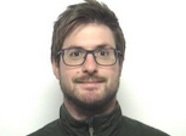 My research interests are on humanitarian intervention and peace operations and my doctoral project focuses on the ways in which academics seek to transform practice and theory in pursuit of a more positive and durable peace. I am particularly interested in how academics attempt to contest orthodox and mainstream approaches to peacebuilding which typically reify conflict promoting structural factors.
My research interests are on humanitarian intervention and peace operations and my doctoral project focuses on the ways in which academics seek to transform practice and theory in pursuit of a more positive and durable peace. I am particularly interested in how academics attempt to contest orthodox and mainstream approaches to peacebuilding which typically reify conflict promoting structural factors.
I finished my undergraduate studies (Politics with Honours) at Otago University in 2010 where my research dissertation focused on the interaction between regional organisations and the United Nations during peace operations in South Sudan and the Solomon Islands.
In 2013 I completed my Masters thesis at Victoria University in Wellington (NZ) where I sought to understand how regional organisations (ASEAN, AU, and OAS) had interpreted the 'Responsibility to Protect' norm. During this time I worked as a course and tutor co-ordinator for several papers on security and International Relations and interned at the New Zealand Council for International Development.
After completing my degree I worked as a political advisor in local government before moving back to Dunedin to undertake my Doctoral studies.
Ian Niccolo (Nick) Tobia
Started 1 May 2016; currently on deferral until October 2020
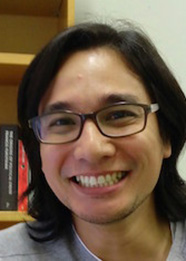 My professional background is broadly in the field of human rights, and with specific engagements in peace issues related to insurgency, impunity crimes in counter-insurgency, armed conflict, internal displacement, and political settlements in the context of mediated intrastate peace processes. I have worked on these issues in the government, inter-government and non-government sectors, with recent posts in the ASEAN Secretariat and The Asia Foundation.
My professional background is broadly in the field of human rights, and with specific engagements in peace issues related to insurgency, impunity crimes in counter-insurgency, armed conflict, internal displacement, and political settlements in the context of mediated intrastate peace processes. I have worked on these issues in the government, inter-government and non-government sectors, with recent posts in the ASEAN Secretariat and The Asia Foundation.
Prior to the PhD program in Otago, I earned my master's degrees in human rights at the University of Sydney (MA Human Rights and Democratisation) and Mahidol University (MA in Human Rights), through the European Union-USyd MHRD Asia-Pacific Scholarship. I also earned an MSc in Peace and Conflict Research at Uppsala Universitet through the Rotary Peace Fellowship. I am a grantee under the Global Peace Index 2016 Ambassadorial Program of the Institute of Economics and Peace and Rotary International.
I am conducting my PhD research at the National Centre for Peace and Conflict Studies through the REI Foundation scholarship. The subject of the research is on multiple non-state armed groups and intrastate peace processes, specifically on the challenges to broad inclusiveness in formal track negotiations.
2015
Dr Joseph Llewellyn
Started 1 March 2015; submitted 28 May 2018; graduated
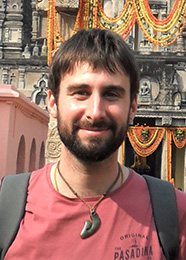 Dr Joseph Llewellyn completed his PhD at the National Centre for Peace and Conflict Studies (NCPACS) in 2018 with the support of a scholarship from the Rei Foundation. Previously, he completed an MA and a PGDip at NCPACS. Before starting post-graduate study, he trained as an occupational therapist. Joseph also has a background in peace activism.
Dr Joseph Llewellyn completed his PhD at the National Centre for Peace and Conflict Studies (NCPACS) in 2018 with the support of a scholarship from the Rei Foundation. Previously, he completed an MA and a PGDip at NCPACS. Before starting post-graduate study, he trained as an occupational therapist. Joseph also has a background in peace activism.
Joseph's doctoral research explores anarcho-pacifist nonviolence and the stateless peace envisioned by the Gandhian Sarvodaya movement in India. His research interests include: anarchism, pacifism, nonviolent resistance and protest, Gandhi, Buddhist perspectives on nonviolence, military abolition, and decolonisation. He is currently working in as a researcher.
View Joseph's thesis on OURArchive
Dr Jonathan Sutton
Started 1 February 2015; submitted 25 January 2018; graduated
View Jonathan's thesis on OURArchive
2014
Dr Mahdis Azarmandi
Started 1 March 2014; submitted 31 May 2017; graduated
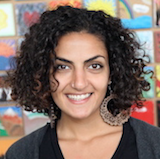 Mahdis' research looks at anti-racism and colonial amnesia in Aotearoa New Zealand and Spain. Her research interests are racialization and anti-racism, feminism, queer theory, colonization & decolonization. She is a teacher for life-long learning and social justice activist.
Mahdis' research looks at anti-racism and colonial amnesia in Aotearoa New Zealand and Spain. Her research interests are racialization and anti-racism, feminism, queer theory, colonization & decolonization. She is a teacher for life-long learning and social justice activist.
View Mahdis' thesis on OURArchive
Dr Daniel Fridberg
Started 1 March 2014; submitted 14 June 2017; graduated
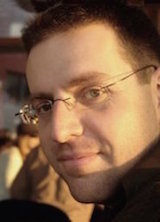 Throughout his studies in psychology, as an undergraduate student, and in conflict research, management and resolution, as a masters student, Daniel has been fascinated by the ever-existing gap between the human potential for peace and prosperity and its reality of mutual and self destruction in many parts of the world, including the Middle East, where he grew up and spent most of his life.
Throughout his studies in psychology, as an undergraduate student, and in conflict research, management and resolution, as a masters student, Daniel has been fascinated by the ever-existing gap between the human potential for peace and prosperity and its reality of mutual and self destruction in many parts of the world, including the Middle East, where he grew up and spent most of his life.
In an attempt to solve this dissonance he spent 12 years training and practicing various aspects of conflict resolution:
- conducting mediation and consensus-building processes;
- leading public participation processes in joint decision making processes;
- dialogue encounters between conflicting groups on the grassroots and track II levels; directing community and peacebuilding projects;
- and conducting both academic and applied research (including evaluation research) for various NGOs and international foundations in the fields of education, peacebuilding and social activism.
He was a staff member at the Evens MA program for Conflict Resolution and Mediation at Tel-Aviv University in Israel, teaching a course about theory and practice of ADR (Alternative Dispute Resolution).
His doctoral project develops a conceptualization of guidelines for transformation from militant to peace activism, and by that, contribute to both theory and practice of conflict intervention. His work draws upon life stories of ex-combatants from Israel and Palestine.
View Daniel's thesis on OURArchive
2013
Dr Rachel Rafferty
Started 1 September 2013; submitted 30 September 2016; graduated
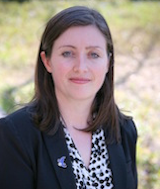 Dr Rachel Rafferty was one of the first two Rei Foundation scholars to study at the Centre. She graduated with her PhD in Peace and Conflict Studies in May 2017 and began working as a Lecturer in the Centre in July.
Dr Rachel Rafferty was one of the first two Rei Foundation scholars to study at the Centre. She graduated with her PhD in Peace and Conflict Studies in May 2017 and began working as a Lecturer in the Centre in July.
Her doctoral research focused on how civil society actors in a protracted conflict develop differing motivations regarding intergroup peacebuilding, and she received an Exceptional Thesis Award from the Division of Humanities. She also holds a Masters degree from the School of Education at University of North Carolina at Chapel Hill and a Postgraduate Certificate in International Development from Duke University, qualifications she gained during her time as a Rotary Peace Fellow.
Prior to pursing her graduate studies, Dr Rafferty worked for several years as a peacebuilding practitioner in Northern Ireland where she designed and delivered a broad range of projects in partnership with local communities. More recently she has worked in youth development with New Zealand Red Cross where she developed an educational support programme for refugee background youth.
View Rachel's thesis on OURArchive
Hafiza Yazdani
Started 1 November 2013; submitted 31 July 2018; graduated
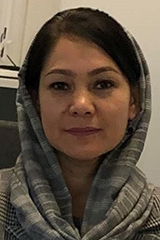 Dr Hafiza Yazdani was one of the first two Rei Foundation scholars to study at the Centre.
Dr Hafiza Yazdani was one of the first two Rei Foundation scholars to study at the Centre.
Hafiza's doctoral research looked at peace education in Afghanistan. She analysed and evaluated three different approaches to education by looking at a range of school textbooks from a peace education perspective.
Before pursuing her PhD, Hafiza worked with World Bank, UN Women and USAID to promote human rights, gender equality and peace in Afghanistan. She holds a Master degree in Peace Building and Conflict Resolution.
